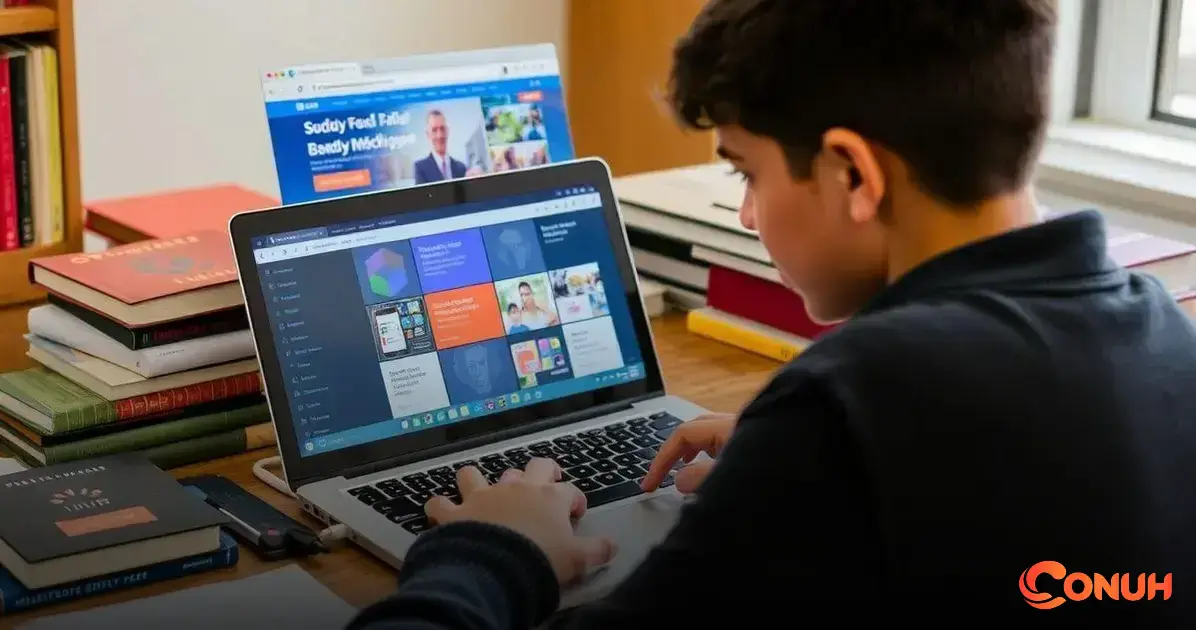ADVERTISEMENT
Study Tips That Really Work can make all the difference when you want to boost your learning and get better results. Finding the right strategies helps you study smarter, not harder.
With simple changes to your routine, you can improve focus and retain information much easier. It’s about making studying feel less like a chore and more like a habit that sticks.
ADVERTISEMENT
Ready to discover easy and effective ways to upgrade your study game? Keep reading to explore practical tips that could change how you approach your learning forever.
Understanding Effective Study Techniques
Understanding effective study techniques is key to improving your learning. One popular method is the Pomodoro Technique. This technique encourages you to study for a set period, usually 25 minutes, followed by a short break. This helps to keep your mind fresh and focused.
Another great approach is active recall. Instead of just reading your notes, actively try to remember the information without looking. This helps reinforce what you’ve learned and makes studying more interactive.
Lastly, consider using spaced repetition. This technique involves revisiting the material over increasing intervals of time. By spacing out your review sessions, you’ll improve long-term retention of the information.
How to Create a Study Schedule
Creating a study schedule is an important way to stay organized and focused. Start by writing down all your subjects and the topics you need to cover. This gives you a clear view of what needs to be studied and helps you plan your time more effectively.
Next, choose specific days and times to study each subject. Be sure to include breaks to avoid burnout. For instance, if you study for two hours, take a 15-minute break. This keeps your mind sharp and helps you absorb the information better.
Finally, be flexible with your schedule. Sometimes things don’t go as planned. If you miss a study session, reschedule it instead of giving up. Keeping your study schedule adaptable will help you stay motivated and on track.
Best Resources for Learning

When it comes to the best resources for learning, online platforms are incredibly helpful. Websites like Khan Academy and Coursera offer a variety of free courses that cover many subjects. These platforms allow you to learn at your own pace and check your understanding through quizzes and practice exercises.
Another valuable resource is study apps. Apps like Quizlet and Anki help you create flashcards and practice information on the go. These tools are perfect for reviewing material during short breaks or whenever you have a few minutes to spare.
Don’t forget about local libraries as a great resource for learning. Libraries often have textbooks, study guides, and even free access to online learning materials. Plus, you can find a quiet place to study, which helps improve your focus and productivity.
Tips for Active Engagement
Active engagement is essential for effective studying. One method to enhance engagement is teaching others. When you explain a topic to someone else, you reinforce your own understanding. This helps you recall information better and identify areas where you need more practice.
Another tip is to use visual aids. This includes diagrams, charts, and mind maps. Visual aids can make complex information easier to understand and remember. They also break up your notes and make studying more interesting.
Lastly, consider joining a study group. Working with peers can make studying more enjoyable and interactive. You can quiz each other, share resources, and discuss different viewpoints. This collaboration often leads to deeper understanding and better retention of the material.
Methods to Reduce Study Stress
Reducing study stress is important for effective learning. One way to manage stress is through regular exercise. Physical activity boosts your mood and energy levels while helping you focus better. Even a short walk can make a big difference in reducing anxiety and refreshing your mind.
Another effective method is to practice mindfulness and breathing exercises. Taking a few minutes to breathe deeply and clear your mind can help you calm down before study sessions. This can improve your concentration and make studying feel less overwhelming.
Finally, creating a comfortable study environment can also help reduce stress. Make sure you have a tidy, quiet space with good lighting. Personalize it with things that make you feel relaxed, like plants or inspiring quotes. A pleasant environment can make studying more enjoyable and less stressful.
Setting Clear Goals and Mixing Study Methods
Setting clear goals for each study session can boost your productivity significantly. When you know exactly what to achieve, it’s easier to stay focused and motivated. Try breaking down big topics into smaller, manageable tasks.
Using different study methods keeps things fresh and prevents boredom. Mix reading, writing, and speaking aloud to engage multiple parts of your brain. This variety helps deepen understanding and makes learning more enjoyable.
Don’t underestimate the power of regular reviews. Revisiting material frequently helps transfer information from short-term to long-term memory. Schedule quick recap sessions to keep knowledge sharp and ready for exams.
Taking Care of Your Body and Mind
Taking care of your body plays a crucial role in how well you study. Proper nutrition, hydration, and sleep improve concentration and memory retention. A healthy lifestyle supports mental clarity and keeps energy levels high during study time.
Incorporating physical activity into your routine can also reduce stress and boost brain function. Even light exercise releases endorphins that improve mood and focus. Consider short walks or stretching breaks to refresh your mind.
Balance is key—make sure to give yourself downtime to avoid burnout. Taking breaks and engaging in hobbies can recharge your motivation. When you return to studying, you’ll be more productive and less overwhelmed.
Using Technology Wisely and Seeking Support
Technology can be a powerful ally if used wisely while studying. Use apps and tools designed to enhance learning and organization. Tools like digital flashcards, timers, and note-taking apps streamline your workflow and save time.
However, it’s important to avoid distractions from social media and unrelated notifications. Set boundaries and use “Do Not Disturb” modes during study periods. Creating a focused digital environment helps maintain deep concentration.
Finally, seek feedback and support when you need it. Talking to teachers, tutors, or classmates can clarify doubts and boost confidence. Learning doesn’t have to be a solo journey—collaborate and grow together.







